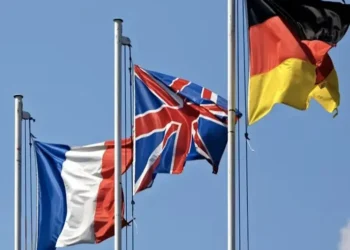Let’s take a closer look at the presidency of Donald Trump, the monumental global-caliber political figure of our time, whose forceful leadership has left a long-lasting mark on both his own country and the entire world. Trump’s presidency has brought both benefits and challenges for countries like Georgia, as they navigate the complicated process of reshaping their foreign policies based on his America-First agenda.
For Georgia, Trump’s first term had mixed effects. While his reinforcement of US military aid strengthened Georgia’s defense capabilities, his focus on bilateral deals sometimes suspended multilateral strategies, which are crucial for small nations balancing between global powers. The main peril lay in the unpredictability of US foreign policy. After Trump’s administration signaled shifting commitments to NATO, doubts were raised about the West’s determination to protect allies like Georgia, which has, for the past 30 years, heavily relied on Western support to maintain sovereignty and resist Russian aggression.
At the same time, Trump’s strong stance on Russia, specifically through sanctions, put pressure on the Kremlin. The Trump administration also opened doors for stronger US-Georgia ties, raising hopes for increased economic assistance and potential support for Georgia’s aspirations to join the EU.
Georgia’s economy benefited, particularly through increased investments in sectors like transportation and logistics. The Trump administration also had an indirect, circumstantial effect on Georgia’s employment rate, especially in key sectors like agriculture and construction. For Georgia, the changes introduced by the Trump government in international trade relations created both uncertainty and opportunity. As a trade-dependent nation, Georgia felt the ripple effects of these fluctuations. The agriculture sector, particularly its poultry industry, faced challenges due to retaliatory tariffs and export barriers imposed on Russia and China.
Georgia’s economy remained relatively robust, but trade uncertainties and immigration policies created difficulties. While Trump’s sanctions against Russia provided some reassurance about US commitment to countering Kremlin influence, Georgia’s growing tensions with the West, particularly over domestic policies, left the nation in a precarious situation. Democratic principles that underpin alliances with NATO and the EU were tested, and Georgia’s government faced criticism for its perceived alignment with the renewed Trumpism through nationalist values and anti-LGBT policies.
At the same time, efforts by Georgia’s leadership to avoid direct conflict in the wake of the Ukraine war highlighted the delicate balancing act the nation had to perform. Western pressure to align more closely with EU and NATO goals, coupled with public criticism of the Georgian government, revealed fissures that Trump’s foreign policy approach was unlikely to patch.
One key intersection of Trumpism and Georgia’s current government lies in shared values, such as traditionalism, family-centric ideologies, and nationalism. These overlapping philosophies created a semblance of compatibility between Trump’s rhetoric and the ideals of Georgia’s ruling party. However, this alignment also exposed Georgia to greater scrutiny from Western democracies concerned about human rights and liberal values.
Domestically, Georgia faced new pressures tied to global narratives of polarization. Trump’s divisive discussions on issues like immigration and public protests resonated within Georgia. Moreover, American congressman Joe Wilson’s vocal criticism of the Georgian government amplified tensions, forcing the country to navigate between protesting crowds and foreign powers.
Georgia currently faces a mix of territorial integrity challenges, impaired relations with the West, demographic concerns, and the need for accelerated economic development. Georgia continues to grapple with Western pressure amid fears of alienating Russia, growing public dissent, and questions about its role in the world economy. Trump’s presidency unquestionably left a mark on US-Georgia relations, offering both constructive outcomes and sensitive reservations.
Looking ahead, Georgia’s success may depend not solely on the policies of foreign powers like the US, but also on how it places itself as a bridge between rapidly changing global interests. Only time will tell whether Trump’s legacy will ultimately benefit or challenge Georgia in the years to come.
by Nugzar B. Ruhadze














